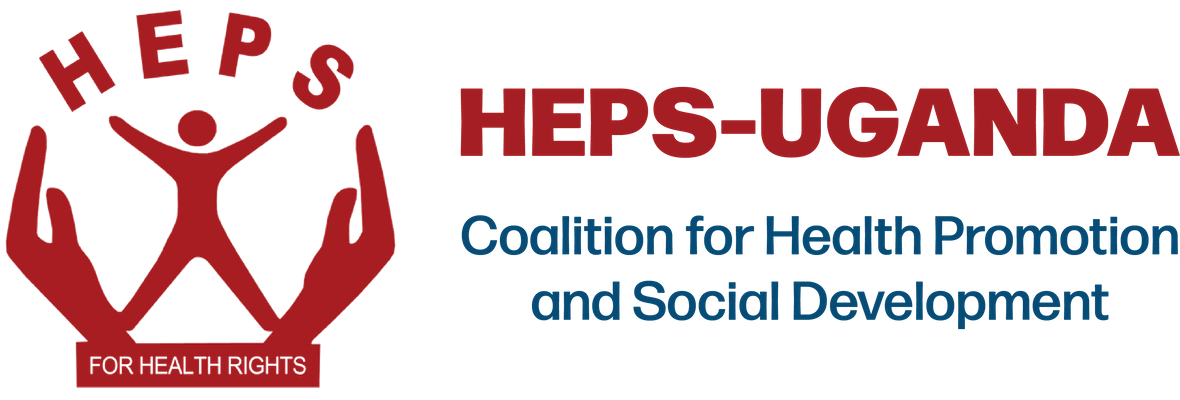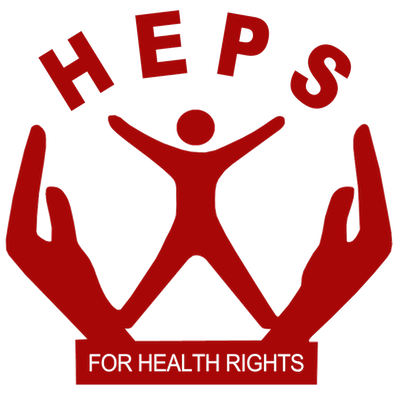Immunisation Campaign continues: HEPS-Uganda@25 supported immunization outreaches in Bambala village in Kyankwanzi district under the Leave No One Behind (LENOBI) project, supported by Uganda Expanded Program on Immunization (UNEPI). Health workers from Muwangi Health Center (HC) III conducted vaccinations for children under five to reduce zero doses and under-immunization. Additionally, women of childbearing age received tetanus vaccinations. The health workers also conducted community sensitization on the importance of vaccination to address hesitancy and took advantage of the outreach to vaccinate children below four years against measles following outbreaks in Kyankwanzi and Kiboga. They further extended the campaign to schools during the Integrated Child Health Days.
Stakeholder Dialogue on access to HIV/TB services: HEPS-Uganda@25, in partnership with ICWEA, hosted a stakeholder dialogue on the findings on access to HIV/TB services in the process of integrating them into general outpatient and chronic care services. The research team observed that client triage was not clear to HIV/TB clients, who reported heightened stigmatization in the OPD setting. Despite the expanded staffing norms, staffing levels have not yet improved with the cut-off of PEPFAR-supported teams, and are neither sufficient nor capacitated enough to deliver integrated health services to the higher OPD traffic. HIV/TB clients do not know why their clinics are closed.
The meeting was held on 28 October 2025 at Mestil Hotel, Kampala. It was attended by stakeholders from the Ministry of Health, the US Centers for Disease Control and Prevention (CDC), UNAIDS Uganda, people living with and/or affected by HIV/TB, the civil society, and other stakeholders. This program is funded by the US CDC through UNAIDS.
National Health Financing Dynamics Workshop: HEPS-Uganda took part in the National Health Financing Dynamics Workshop organized by the Uganda National NGO Forum and CEHURD. The event brought together key stakeholders, including Ministries, Departments, and Agencies (MDAs), Development Partners (DPs), Civil Society Organizations (CSOs), and Local Governments. The workshop generated key recommendations aimed at strengthening health financing, such as integrating services, advancing digitization, engaging the private sector, implementing the National Health Insurance Scheme (NHIS), and enhancing community health promotion for prevention.
United for Prevention dialogue: HEPS-Uganda@25 participated in the United for Prevention dialogue meeting organized by the Uganda AIDS Commission in collaboration with Alive Medical Foundation and other key partners. The dialogue focused on sharing findings from a survey conducted in line with UNAIDS’ goal to end AIDS by 2030. However, Uganda’s progress toward this goal is now at risk due to reductions in U.S. funding and shifts in donor priorities, which have weakened national health systems and disrupted HIV prevention programs.
From our partners,
UGANET held a community outreach training in Kasese District, Uganda, as part of the Action Phase training for Community Advocates (CAs) in Kyondo subcounty. The session brought together participants from Kyondo, Kisinga, and Kyarumba, aiming to enhance their capacity to champion human rights, promote access to justice, and strengthen community-led advocacy for vulnerable populations.
Uganda Paediatric Association organized a pre-conference session focusing on non-communicable diseases (NCDs) in children as part of the First National Annual Communicable and Non-Communicable Diseases (NACNDC) and 19th Joint Annual Scientific Health Conference (JASHC) 2025, taking place at Speke Resort Munyonyo. The pre-conference sessions for the first NACNDC+JASHC conference commenced on Monday, 3 November 2025. The session brought together leading experts, including Prof. Richard Idro and Prof. Sarah Kiguli from the Makerere University College of Health Sciences, Dr. Joyce Balagadde from the Uganda Cancer Institute, and Dr. Joanita Nampijja from the Makerere University Lung Institute.
From your Community,
Mbale: Every year, an estimated 1,400 children in Uganda are born with spina bifida, a condition that occurs when the spinal cord does not form properly during early pregnancy. While the numbers may seem small compared to the national birth rate, experts warn that many cases go unnoticed, leaving children vulnerable to lifelong disabilities.
Busoga: The Smart Africa Village Development Consortium, together with the Ministry of Health, has embarked on the construction of five modern diagnostic centres in the Busoga sub-region to improve healthcare delivery and control the growing burden of non-communicable diseases (NCDs).
Kasanga: Over 100 children were immunised against Polio in Kasanga at Hope Clinic as the Rotary Club and partners marked World Polio Day. The initiative is to raise awareness about the importance of vaccination in eradicating diseases.
From Uganda,
Mulago Hospital Marks World Stroke Day: Mulago National Referral Hospital commemorated World Stroke Day with a special medical camp to raise awareness about stroke prevention, management, and recovery. Stroke patients, survivors, caregivers, and members of the public received free health screening and consultations from medical experts.
Uganda gets more Mpox vaccines: Uganda has been allocated another 110,000 doses of the Mpox vaccine by the Africa Centers for Disease Control and Prevention (CDC). The vaccines were availed through the Mpox Access and Allocation Mechanism.
CSOs call for tighter regulation of medical training institutions: Leaders of Civil Society Organizations (CSOs) have expressed concern over the declining quality of Uganda’s medical workforce, particularly from private medical training institutions in rural areas.
From the region,
Kenya: The World Health Organization (WHO) Digital Finance Team, in collaboration with the Ministry of Health, introduced a digital payment system to ensure health workers are compensated faster and more reliably. Payments now reach workers’ mobile wallets in as little as 72 hours, a dramatic improvement from the previous 15-day average.
South Africa: South Africa’s Department of Health, in collaboration with the London School of Economics and Political Science and the Clinton Health Access Initiative, hosted a public panel discussion on accelerating Universal Health Coverage (UHC) and health security in South Africa on Monday, 3 November 2025.
Global health security,
Dedicated clinics making all the difference in Burundi’s response to Mpox: Since late July 2024, Burundi has been actively responding to an mpox outbreak that had affected nearly 5000 people by mid-October 2025. To tackle the outbreak, the Government of Burundi, with support from the World Health Organization (WHO) and other partners, has implemented a coordinated, multisectoral response. One of the key priorities has been the establishment and renovation of dedicated care facilities. As of 18 October 2025, the three WHO-supported centres had treated a cumulative total of almost 4420 mpox patients – over 98% of all reported cases.






